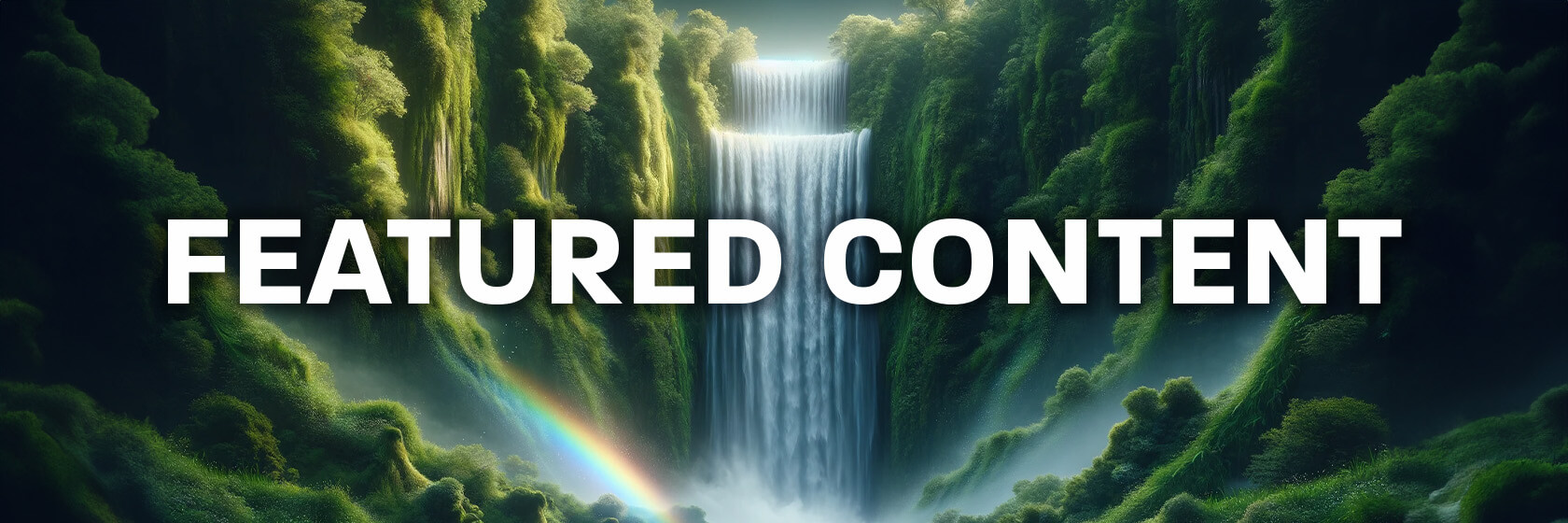Today's Guide to the Marketing Jungle from Social Media Examiner... | Presented by |  |
It's National Still Need To Do Day, Alluser... How big is your ✅ 📃 list?
In today's edition:
-
Today's 👉 Tip of the Day is for short-form video
-
Using 🧠 consumer behavior to improve your marketing
-
👣 Generation demand strategy
-
🔥 High-intent leads from YouTube
-
🚩 Posts on Bluesky go public
-
Microsoft's AI app 🤖 Copilot releases for Android
-
📣 More news from Instagram, TikTok. and more

Could you be making TikTok, Reels, or Shorts too difficult? You don't have to script everything out word-for-word. In many cases, you simply need to come up with a video format you can batch-produce by repurposing. That's all it takes to get started. The secret? Context.
Creating Short-From Content With Context
When repurposing long-form content like podcast interviews into short social media videos, you want to identify the most compelling snippets.
As you record the long-form content, intentionally highlight hooks, hot-button questions, or intriguing moments and save those portions.
Then, frame each clip by first setting up the hook and context so the bite-sized content makes sense and captivates viewers when shared. The key is maintaining hooks and shareability even in abbreviated excerpts.
Today's tip is inspired by Austin Falter.

Can You Believe It's the Last Friday in 2023?
Want to make sure next year is even better?
Today is the last day to save 50% on your On-Demand ticket to Social Media Marketing World—taking place February 18–20, 2024
With an On-Demand ticket, you get access to every keynote, session, and workshop for a fraction of the price of attending Social Media Marketing World in San Diego.
"The content shared by the speakers was invaluable. I feel like we learned so much and can start implementing today," said Elizabeth McFadden.
I'm ready to crush it in 2024.

Using Behavioral Science to Boost Marketing
Behavioral science studies why people act the way they do. As marketers, we can use insights into customer behavior to craft more persuasive messages.
Applying behavioral science can help you understand your customers' instincts so you can craft marketing messaging tailored to leverage—not fight against—their intrinsic biases.
Use these three core principles from behavioral science to increase response rates to your marketing.
Tap Into Hardwired Human Behaviors
Humans often rely on mental shortcuts and instinctive reactions when making quick decisions instead of carefully reasoning things out. Identify these reflexive biases your audience may have. Then strategically trigger automatic positive associations through your messaging. For example, call out authorities and experts who endorse your product since people instinctively look to trusted leaders when evaluating claims.
Offer Autonomy Through Choice
Providing options boosts response rates because people crave control over situations. Simply having a say between two offerings instead of just one makes customers feel empowered to decide for themselves. According to one study, giving choices nearly quadruples the chances someone buys then and there. But cap options around three or five choices—too many paralyzes decision-making.
Make Processing Easy
Messages that clearly communicate key information feel intuitively believable and breed confidence. Use simple, concrete language free of jargon and niche acronyms. Break content into scannable sections with ample white space between short paragraphs. Stick to familiar fonts in dark text on light backgrounds. Complex, confusing presentations backfire by implying your offer itself seems complicated.
Test Subtle Messaging Tweaks
Small wording changes significantly impact reactions despite conveying essentially the same core message. For example, "free" garnered twice the email open rate as "complimentary" in subject lines. Adding "small" before a $5 shipping fee boosted eCommerce conversions by 20% even though everyone understands $5 is a modest charge. Never assume minor details don't move the needle.
Today's advice is provided with insights from Nancy Harhut.

Generating Demand Through Targeted Content
Many marketers focus solely on capturing leads. But cultivating demand before your offer even exists builds crucial momentum.
Follow this framework to apply a staggered approach across marketing channels to attract prospects and move them through the customer journey.
Start with Outbound Prospecting
Outbound prospecting like cold emails can quickly secure clients to fund further initiatives. Though imperfect, this tactically targets those already sold on needing your solution to yield deals immediately. To improve your results, develop sequences tailored to common customer questions and friction points.
Build Organic Authority on Social
Consistently publishing social media content will help you establish expertise and community. For example, daily posts on preferred platforms like LinkedIn teach and update followers on industry insights. In these posts, avoid self-promotion. Instead, address broader issues and share tactics benefiting anyone. This transparency and value earns trust over time, ultimately converting prospects into customers down the line.
Create Discoverable Informational Content
You can expand your reach exponentially via evergreen content housed on searchable channels like YouTube that let you compile educational assets indexed for the long haul. Prospects land on specific videos addressing their needs then continue consuming your catalog. The archived body of work underscores your authority while nurturing consumption moves visitors closer to a sale.
Scale Paid Ads Last
Premature scaling wastes budgets better spent understanding what makes clients tick beforehand through affordable channels. When you have the first three avenues and your offer in place, you can launch advertising to amplify content from the social and evergreen funnels via paid promotion to your mapped audiences.
Today's advice is provided with insights from Phil Ilic.

The Best Holiday Present Ever!
If you didn't get that special gift you were hoping for this season, why not give yourself the best gift of all… an On-Demand ticket to Social Media Marketing World 2024.
It's the gift that keeps on giving… with 365 days of education to help you achieve your goals.
Right now you can save 50% off of an On-Demand ticket. But don't wait too long! This special offer ends in a few days.
I'm ready for the gift of education.

YouTube Ad Targeting for High-Intent Leads
YouTube presents unmatched targeting capabilities for securing purchasers compared to other platforms, but it's not a single switch you can flip.
This multi-layered strategy is tailored to finding people who are ready to buy now—not just anyone showing interest—by filtering prospects until only serious customers remain.
Start With Broad Targeting
Don't limit scale unnecessarily out the gate when competition is lower during these early YouTube adopter days. Create a wide initial audience based on basic demographics like age, gender, and location plus a few related interests. Cast this wide generic net first before refining your audience further.
Add Income Filtering
Next, narrow your prospect audience to specific income ranges in the campaign settings. This eliminates the "I can't afford it" objection preemptively. For premium offers, aim for the top 30% of household incomes initially. Remember to consider geographic concentrations of wealth too—targeting high-income zones converts better.
Refine Targeting With Intent Signals
You can identify strong indicators of immediate buyer intent using these three sources:
Google Search Terms: Target keywords people are actively hunting related solutions for.
Competitor Website Visitors: Show ads to those viewing rival online destinations.
Related YouTube Channels or Videos: Place ads on the content your perfect customer consumes.
Blend these signals in your targeting to reach prospects who are taking actions tied to an imminent selection or purchase. This helps you reach people who are actively looking for a solution.
Start Your Layering Gradually
Avoid overcomplicating targeting right away. Begin with just the Gender and Income tactics first, for example. Then, you can progressively add Intent qualifiers once you're confident in your baseline conversions.
With thoughtful segmentation in place, YouTube will surface you to interested viewers while they're in the mindset of discovering options.
Today's advice is provided with insights from Ben Jones, a featured speaker at Social Media Marketing World.

🗞 LinkedIn Professional Development Tools: LinkedIn's Chief Product Officer Tomer Cohen announced several new product features to help users advance their careers through learning, including AI-powered coaching to provide personalized advice; bite-sized daily video lessons to fit learning into busy schedules; recommendations of specific courses and professional certificates tailored to the skills needed for jobs users are interested in; expanding professional certificates offered through LinkedIn Learning to showcase skills to potential employers; and more hands-on coding practice features like sandboxes and code challenges to help users build technical skills. Source: LinkedIn
🗞 Bluesky Posts Go Public: Bluesky, a decentralized social media platform originally funded by Twitter, has taken new steps to open up public access to content. Users can now view individual Bluesky accounts and posts on the website and mobile apps, unless a user has opted out. Bluesky also introduced a new butterfly logo and icon to reflect this transition to being more publicly accessible. However, an invite code is still required to sign up for an account. With over 2.6 million current users, Bluesky promises full user control and account portability through its "Authenticated Transfer" (AT) protocol. Bluesky plans to finalize the AT protocol in early 2024 to allow other sites to join, and then open public sign-ups. Source: The Verge
🗞 Instagram Profile Sharing: Instagram is developing a Stories feature enabling users to share and promote other profiles directly in their Stories. Discovered by app developer Alessandro Paluzzi, it adds a "View Profile" button to spotlight and drive traffic to profiles. This boosts visibility and potential followers for shared accounts. Source: Phone Arena
🗞 LinkedIn Ads Revenue Rises: According to estimates from research group Insider Intelligence, LinkedIn's yearly ad revenues climbed to nearly $4 billion in 2022, a 10.1% increase. This growth is forecasted to continue with a projected 14.1% revenue increase next year. Marketing executives report LinkedIn ad prices have risen 30% over the past year. Though LinkedIn commands only 1.5% of US digital ad spend compared to giants like Google and Meta, it is capitalizing on X's deterioration to rapidly expand its ad business. Source: PYMNTS
🗞 Social Media Account Deletions: A recent analysis by TRG Datacentres looked at which social media platforms people most wanted to delete their accounts from in 2023. By tracking global searches for "how to delete my ___ account", Instagram topped the list with over 1 million such searches per month - equating to around 12,500 searches per 100,000 people. The authors warn that if this rate of account deletion requests continues, it could substantially impact Instagram's user base of 2 billion within a year. Snapchat took second place, with around 130,000 monthly searches for deleting accounts - approximately 1,600 per 100,000 individuals. Source: Mint
🗞 TikTok Creator Tools: TikTok is rolling out new desktop tools to provide creators and marketers greater insights. An updated Creator Center interface displays analytics in a full-screen, easy-to-use dashboard format. Additionally, TikTok's Creative Center now features a conversational chatbot to help guide users to relevant discoverability tools and trend information. Source: Social Media Today
🗞 Microsoft AI Copilot: Microsoft has released a ChatGPT-like "Copilot" app for Android. The free app focuses on enhanced conversational AI to assist with tasks like drafting content, summarizing texts, translating languages, and proofreading. It also generates images from text prompts via DALL-E integration. Copilot supports third-party plugins for additional capabilities, though core features work without plugins enabled. The Android app is lightweight at 83MB. Microsoft is nearly ready to launch a native iOS version of Copilot according to sources. Currently, iOS users can access Copilot features via Bing or Safari, but a dedicated app should provide an optimized experience. Source: Windows Latest
Did You Know?
Chionophobia causes extreme fear and anxiety in people who see a falling snowflake.

Michael Stelzner, Founder and CEO
P.S. Add
michael@socialmediaexaminer.com into your contacts list. Use Gmail?
Go here to add us as a contact.
We publish updates with links for our new posts and content from partners. Your information: Email:
tukangpostoemel@gmail.com Opted in on: 2021-09-06 17:20:47 UTC.










